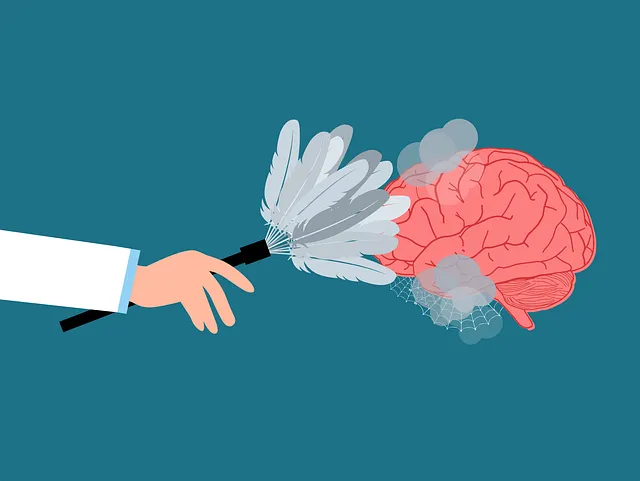Kaiser Permanente's implementation of Resiliency, Frequency, and Moment (RFM) models at its Wheat Ridge mental health locations has brought about significant positive changes. This approach focuses on building emotional resilience, increasing supportive interactions, and creating growth moments, addressing burnout among healthcare professionals while enhancing community engagement. RFM fosters emotional intelligence, improves patient-provider connections, and boosts clinical effectiveness, benefiting both patients and providers. The step-by-step Resilience Building Exercises guide mental health professionals in creating safe spaces where patients develop coping mechanisms for improved emotional well-being. Success is measured through KPIs tracking mental wellness, stress management, and resilience levels, with continuous improvement based on participant feedback and data analysis.
“At Kaiser Permanente Wheat Ridge, integrating Resilient Front (RFM) principles into mental health services has emerged as a transformative strategy. This article explores how RFM, a client-centered approach, enhances resilience and improves outcomes for patients at these locations. We provide a comprehensive guide on implementing tailored resilience-building exercises, offering step-by-step practices for mental health professionals. Additionally, it delves into evaluation methods to measure the success of RFM programs, ensuring continuous improvement in patient care.”
- Understanding RFM and its Impact on Mental Health Services at Kaiser Permanente Wheat Ridge Locations
- Implementing Resilience Building Exercises: A Step-by-Step Guide for Mental Health Professionals
- Measuring Success and Continuous Improvement: Evaluating the Effectiveness of RFM Programs at Kaiser Permanente Wheat Ridge
Understanding RFM and its Impact on Mental Health Services at Kaiser Permanente Wheat Ridge Locations

At Kaiser Permanente Wheat Ridge locations, implementing Resiliency, Frequency, and Moment (RFM) models in mental health services has proven transformative. RFM focuses on building emotional resilience among individuals, emphasizing the frequency of supportive interactions and cultivating moments that foster growth and recovery. By integrating these principles, Kaiser Permanente’s mental health locations have seen significant improvements in patient outcomes.
This approach addresses the pressing issue of burnout prevention among healthcare professionals while enhancing community outreach programs. Through fostering emotional intelligence, RFM enables practitioners to provide more personalized care, leading to stronger connections with patients. The impact is felt not only in improved clinical effectiveness but also in creating a supportive and inclusive environment that encourages both patient and provider well-being.
Implementing Resilience Building Exercises: A Step-by-Step Guide for Mental Health Professionals

Implementing Resilience Building Exercises is a strategic process designed to empower individuals, particularly those at Kaiser Permanente mental health locations in Wheat Ridge, to navigate life’s challenges with enhanced resilience. This step-by-step guide equips mental health professionals with the tools to create safe and supportive environments where patients can cultivate coping mechanisms that foster emotional well-being.
The journey begins by assessing individual needs and tailoring exercises that address specific concerns, be it managing stress, overcoming anxiety, or preventing depression. Empathy Building Strategies form the foundation, encouraging active listening and understanding. Through group discussions and shared experiences at these Wheat Ridge mental health locations, patients learn to recognize and validate their emotions, fostering a sense of belonging and empowerment. These initial steps set the stage for more advanced exercises focused on stress reduction, mindfulness, and cognitive reframing, ultimately reinforcing resilience in both mind and spirit.
Measuring Success and Continuous Improvement: Evaluating the Effectiveness of RFM Programs at Kaiser Permanente Wheat Ridge

Evaluating the success of RFM programs at Kaiser Permanente Wheat Ridge mental health locations involves a multi-faceted approach to ensure the initiatives are meeting their intended objectives. Key performance indicators (KPIs) are set to measure improvements in participant mental wellness, stress management capabilities, and overall resilience levels. These metrics could include reductions in anxiety and depression symptoms as well as increases in self-care routine development and adherence. Regularly conducting post-program assessments and gathering feedback from participants provides valuable insights into the effectiveness of the RFM exercises.
Continuous improvement is fostered through data analysis, allowing for adjustments to program content and delivery methods based on participant experiences. The Stress Management Workshops Organization at Kaiser Permanente Wheat Ridge leverages these evaluations to enhance self-care routine development for better mental health, ensuring that programs remain relevant and impactful in fostering mental wellness among attendees.
The implementation of RFM (Resilience, Flexibility, and Mastery) programs in Kaiser Permanente’s mental health services at Wheat Ridge locations has shown promising results. By integrating resilience-building exercises into patient care, professionals can foster a sense of control and adaptability, enhancing the overall well-being of individuals seeking support. This article’s step-by-step guide and evaluation framework ensure that mental health professionals can effectively introduce RFM, ultimately improving service quality and patient outcomes at Kaiser Permanente Wheat Ridge.






